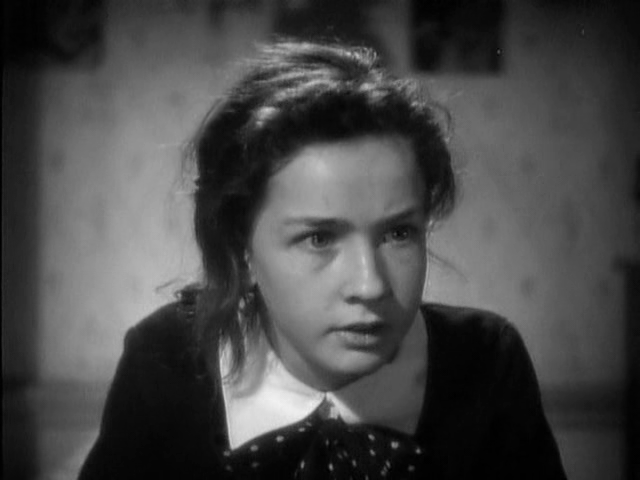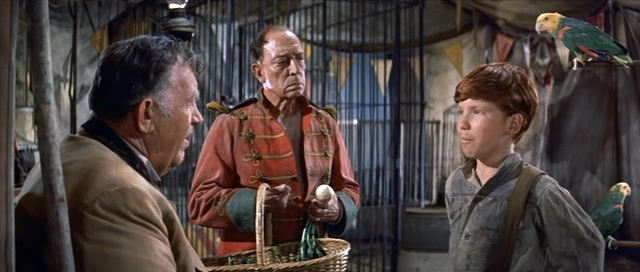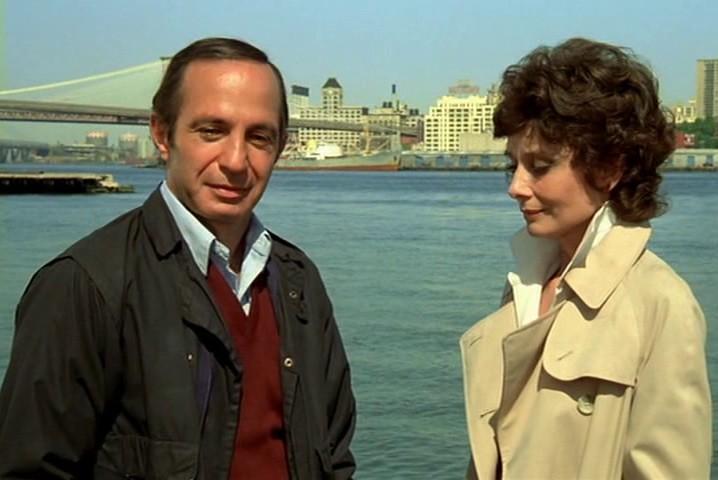ISLAND OF LOST SOULS
This review is part of the Summer Under the Stars Blogathon sponsored by Journeys in Classic Film and Musings of a Classic Film Addict. Today's star is Leila Hyams.
Island of Lost Souls, an adaptation of H.G. Wells' The Island of Dr. Moreau, is quite creepy if unfortunately short, coming in at a brisk 70 minutes. With some standout performances and arresting visuals, Island of Lost Souls is tamer than the original story but with some horrifyingly creepy moments.
Edward Parker (Richard Arlen) is rescued by a passing ship. He sends a message to his fiancee Ruth Thomas (Hyams) that he will arrive soon, but a fight with the drunk Captain Davies (Stanley Fields) causes Parker to be tossed overboard onto the ship bound for the mysterious Island of Doctor Moreau (Charles Laughton) and his henchman Montgomery (Arthur Hohl).
The bad doctor sees Parker as a guinea pig for his satanic medical experiments: turning animals into humans via surgery and genetic modifying. Parker is a lure for Lota (Kathleen Burke, billed as 'The Panther Woman'). She is the only female and the most 'successful' of the mad scientist's creations as she is the most human-looking of Moreau's ghastly menagerie. Parker is tempted by the unwitting temptress, but Ruth has cajoled officials back home to find Parker.
Aided by Captain Donahue (Paul Hurst), they too now arrive on the mysterious island. Moreau sees this as more fortuitous than when he plotted to make Lota Parker's mistress and see if they could create humanoid children. Ruth will be used by the monstrosities Moreau has created, but in his efforts to have Ruth killed he has unwittingly created an uprising among his Beast-Men.
The Sayer of the Law (Bela Lugosi), now realizing that "The Law is No More", leads a revolution. Montgomery, guilt-stricken at his evil work, helps Edward and Parker escape while both Lota and Donahue are killed. Moreau now finds himself in his own House of Pain, the monsters enacting their own vengeance.
 Island of Lost Souls is not graphic but atmospheric, which sometimes makes things more horrifying. Of particular note is when the final revolt takes place: things are so bonkers that this final sequence fills the viewer with genuine shock. Everything from the frightening Beast-Men to the sounds of Moreau going through his own demented surgery at the hands of his creations makes the final part shocking.
Island of Lost Souls is not graphic but atmospheric, which sometimes makes things more horrifying. Of particular note is when the final revolt takes place: things are so bonkers that this final sequence fills the viewer with genuine shock. Everything from the frightening Beast-Men to the sounds of Moreau going through his own demented surgery at the hands of his creations makes the final part shocking.Again, we do not see just what the Beast-Men do to Moreau, just hints of it and Laughton's screams, but the overall effect is terrifying.
Island of Lost Souls is clearly Laughton's show, and he plays the wicked doctor with a mix of creepiness and almost childlike glee. Whether it is playing a little voyeur while watching Lota and Parker close to getting it on or flaunting that whip around you think Dr. Moreau is pretty fond of the kink. As he contemplates what he can do with Lota, this former panther-turned-sexpot, Laughton's face displays a sense of him being more a very naughty child than a crazed figure.
Arlen was very handsome, filling that square-jawed action hero, but Edward Parker came across as a bit dim if he couldn't figure out that the 'natives' were anything but monstrosities, as The Sayer of the Law declares, "Part Man! Part Beast! THINGS!" Hyams was very pretty but she was limited by the role, as Ruth was more a worried girl/damsel in distress than anything else.
 Hohl, in his smaller role, was a standout as Montgomery, the henchman who saw the error of his wicked, wicked ways. Burke was sympathetic as Lota, the unwitting victim, and Lugosi too did strong work as the Sayer.
Hohl, in his smaller role, was a standout as Montgomery, the henchman who saw the error of his wicked, wicked ways. Burke was sympathetic as Lota, the unwitting victim, and Lugosi too did strong work as the Sayer.With regards to the last two, it was unfortunate that Island of Lost Souls was so short, as they would have benefited from having a more expanded role.
We also see some brilliant work from cinematographer Karl Struss, evoking an eerie and atmospheric world. The makeup work on the various Beast-Men is also a high achievement, looking both frightening and realistic for the premise.
It is unfortunate thought that director Erle C. Kenton did not match either the makeup or cinematography. He had a terrible habit of swinging the camera around to capture a scene or a moment rather than do some cutting. The whipping-around at times became distracting.
Island of Lost Souls, if one thought on it, does ask questions about what is man, what he is capable of in mad pursuit of being God-like, and the thin line between civilization and depravity. "Are we not men?", the Beast-Men are trained to ask. When they find that they are not, the retribution is frightening. It's an excellent film that might be worth considering remaking.
Then again, I've yet to see 1996's The Island of Dr. Moreau, so there's that...
DECISION: B+












.png)

/cdn.vox-cdn.com/uploads/chorus_image/image/64140453/yesterday_1_2000.0.jpg)

